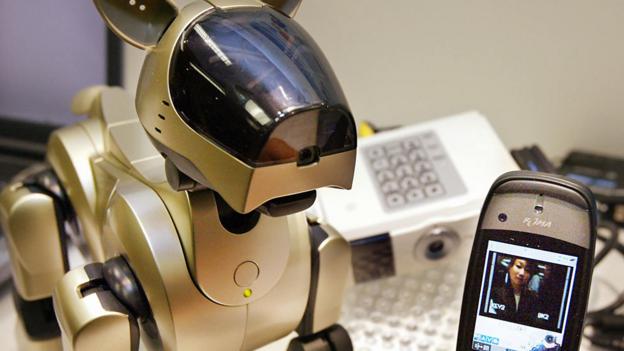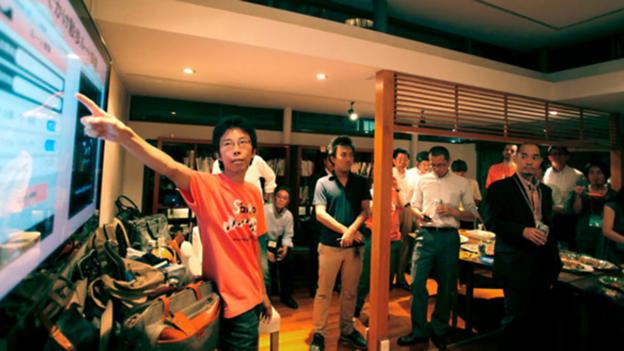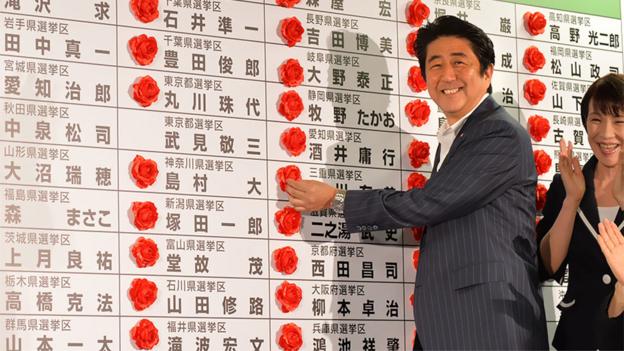Can Japan reboot its anti-innovation startup culture?

- Faltering fortunes
- Japan has a reputation for being a technology giant, but in recent years it has been overtaken in innovation by countries such as the US and South Korea. (Copyright: Getty Images)
Japan has long been hailed as one of the world’s most developed
nations. But when it comes to innovation, things are less rosy. Why is
it stifling its start-ups?
Sony,
Panasonic, Sharp were once household names. Now those same companies
are in deep trouble, losing billions of dollars a year. How have the
mighty Japanese companies fallen so low?
Japanese
start-up entrepreneur Masayoshi Hashimoto believes he knows where the
country’s IT industry is getting its guidance from; the Czech surrealist
author and satirist Franz Kafka.
“Working for a Japanese web services firm, I couldn’t believe how badly things were done,” he says. “We had everyone managing projects using Excel. Excel, I ask you! It beggars belief. But managers here like the old ways.” When changes were suggested he was stonewalled.
Venting his irritation on Twitter led him to a conversation about the business practices afflicting Japan’s tech sector with a fellow malcontent. One face-to-face meeting later, he quit his job to form a company with his new comrade rebel with and created the website Paradiseware, which helps businesses manage projects more efficiently.
The result is typically Japanese; run on a shoestring without any of the benefits Silicon Valley start-ups might attract.
Japan has a real problem with innovation. It’s just not very Japanese. Nor, you might be surprised to read, is originality. It’s the kind of thing swaggering foreigners or suspect loners are thought to meddle in. So if you visit Japan and find ersatz statues of Liberty in tourist spots, or a very uncool bureaucratic drive to promote Japanese creativity and culture ripped off from Cool Britannia - you’ll begin to understand why.
Japan is "good at technology but poor in business" as one official puts it. “Its high levels of basic research and superior technology are hampered by too-strict regulations, and vertically integrated administration. The gap between researchers and manufacturers, in many cases, prevents brilliant R&D results from being put into practical use - the ‘Death Valley’ problem.” Japan leads in its high number of early adopters. Thanks to them, inventors can gain confidence and the initial momentum needed to push off a new idea. But it often doesn’t last long.
“Unfortunately this is accompanied by a very envious, critical and vocal audience. They underline every possible reason that the product will fail and keep doing so indefatigably. They attack the innovator on Twitter, Facebook, blogs, etc; and they keep doing so until the innovator raises a white flag.”
Add to this 20 year’s economic stagnation, zero appetite for risk and eroded confidence and Japan emerges as one the toughest environments on Earth to root new ideas.
There are backers in Japan, his partner Shuku Tanizaki explains, but most are interested only in no-risk ventures. Start-ups have to attract crowd-funding or, as is more usual, the personal savings of their creators. “There’s lots of venture capitalists here but they are only interested in games and new media,” says Hashimoto. Even renting conventional office space can be troublesome in Japan - landlords like to see two years’ profits before they open the door. Paradiseware operates out of cheap, shared office space in central Tokyo.
“I think starting a new business means also confronting the problems afflicting your society,” says Mr Hashimoto.
“Working for a Japanese web services firm, I couldn’t believe how badly things were done,” he says. “We had everyone managing projects using Excel. Excel, I ask you! It beggars belief. But managers here like the old ways.” When changes were suggested he was stonewalled.
Venting his irritation on Twitter led him to a conversation about the business practices afflicting Japan’s tech sector with a fellow malcontent. One face-to-face meeting later, he quit his job to form a company with his new comrade rebel with and created the website Paradiseware, which helps businesses manage projects more efficiently.
The result is typically Japanese; run on a shoestring without any of the benefits Silicon Valley start-ups might attract.
Japan has a real problem with innovation. It’s just not very Japanese. Nor, you might be surprised to read, is originality. It’s the kind of thing swaggering foreigners or suspect loners are thought to meddle in. So if you visit Japan and find ersatz statues of Liberty in tourist spots, or a very uncool bureaucratic drive to promote Japanese creativity and culture ripped off from Cool Britannia - you’ll begin to understand why.
Japan is "good at technology but poor in business" as one official puts it. “Its high levels of basic research and superior technology are hampered by too-strict regulations, and vertically integrated administration. The gap between researchers and manufacturers, in many cases, prevents brilliant R&D results from being put into practical use - the ‘Death Valley’ problem.” Japan leads in its high number of early adopters. Thanks to them, inventors can gain confidence and the initial momentum needed to push off a new idea. But it often doesn’t last long.
“Unfortunately this is accompanied by a very envious, critical and vocal audience. They underline every possible reason that the product will fail and keep doing so indefatigably. They attack the innovator on Twitter, Facebook, blogs, etc; and they keep doing so until the innovator raises a white flag.”
Add to this 20 year’s economic stagnation, zero appetite for risk and eroded confidence and Japan emerges as one the toughest environments on Earth to root new ideas.
There are backers in Japan, his partner Shuku Tanizaki explains, but most are interested only in no-risk ventures. Start-ups have to attract crowd-funding or, as is more usual, the personal savings of their creators. “There’s lots of venture capitalists here but they are only interested in games and new media,” says Hashimoto. Even renting conventional office space can be troublesome in Japan - landlords like to see two years’ profits before they open the door. Paradiseware operates out of cheap, shared office space in central Tokyo.
“I think starting a new business means also confronting the problems afflicting your society,” says Mr Hashimoto.





